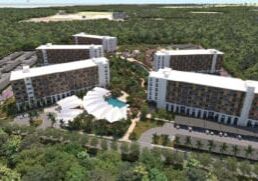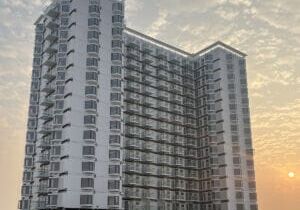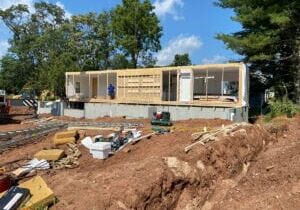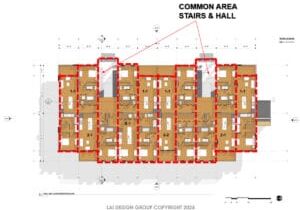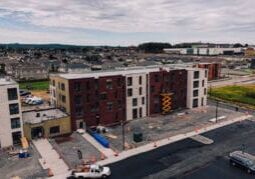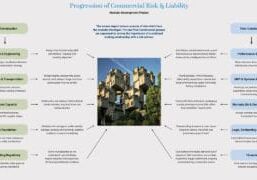MBI and the International Code Council Collaborate to Publish Guideline for the Safe Use of ISO Intermodal Shipping Containers Repurposed as Buildings and Building Components
More than 30 million ISO intermodal shipping containers are in use around the world today. These containers were built to ISO standards and maintained to standards defined by the International Maritime Organization’s (IMO) “Convention for Safe Containers.”
New or used, containers are now repurposed at a pace that makes their reuse a multi-billion-dollar global industry. Containers are regularly repurposed and converted into International Residential Code and International Building Code occupancy uses. As a building material, the applications are widely diverse as is the extent to which the container is used as a structural building element.
Local jurisdictions and state administrative programs are reacting to the growing trend of shipping container repurposing but can be behind in terms of regulations and compliance. This ICC Guideline is intended to help state and local jurisdictions as well as owners, architects, builders and engineers in their assessment as to how to design, review and approve shipping containers as a building element.
The Guideline can be purchased in the ICC’s bookstore at www.iccsafe.org
This article originally appeared in the Modular Advantage Magazine - Second Quarter 2019 released in May 2019.
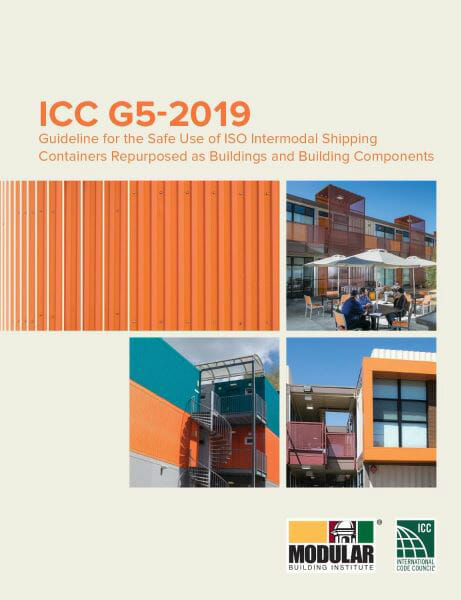
More from Modular Advantage
How Stack Modular Is Using AI to De-Risk Mid- to High-Rise Modular Construction
Artificial intelligence is no longer a future concept in modular construction—it is already reshaping how complex buildings are evaluated, designed, and delivered.
Gearing Up for the 2026 World of Modular
The Modular Building Institute (MBI) is bringing its global World of Modular (WOM) conference and tradeshow back to Las Vegas in April, and with it comes some of the industry’s best opportunities for networking, business development, and education.
New High-Rise Modular Apartment in Abu Dhabi Points Toward the Future of Multifamily Construction
Eagle Hills International Properties chose the BROAD Holon Building for a 16-story market rate apartment building in Zayed City, a central business district of Abu Dhabi. The project highlights the potential of the Holon system of volumetric modular construction to accelerate housing delivery.
MBI Announces First Ever Industry Apprenticeship Program in Collaboration with Marshall Advanced Manufacturing Center
MBI recently agreed to partner with Marshall Advanced Manufacturing Center (MAMC) to provide bona fide USDOL-approved apprenticeship programs for the industry.
AoRa Development Aims for New York’s First Triple Net Zero Building Using Modular Methods
More cities are providing funding for newer infrastructure projects as long as they meet sustainability requirements. This is how modular can fit the bill, thanks to its lower waste production.
Developers and Designers: Lessons Learned with Modular Design
Modular construction is attractive to many developers because sitework and module construction can occur simultaneously, shortening the schedule and reducing additional costs.
UTILE: Putting Modular Building on a Fast Track
In Quebec, UTILE is taking the lead in creating affordable modular buildings to help decrease the student housing shortage. During the process, the company discovered what it takes to make the transition to modular building a success.
Sobha Modular Teaches Developers How to Think Like Manufacturers
With its 2.7 million square foot factory in UAE, Sobha Modular is bringing both its high-end bathroom pods to high-end residences to Dubai while developing modular projects for the U.S. and Australia.
RoadMasters: Why Early Transport Planning is Make-or-Break in Modular Construction
In modular construction, transportation is often called the “missing link.” While it rarely stops a project outright, poor planning can trigger costly delays, rerouting, and budget overruns.
Navigating Risk in Commercial Real Estate and Modular Construction: Insights from a 44-Year Industry Veteran
Modular projects involve manufacturing, transportation, and on-site assembly. Developers must understand exactly what they are responsible for versus what they subcontract. Risk advisors should research the developer’s contractors, subcontractors, and design-build consultants—especially the modular manufacturer.

